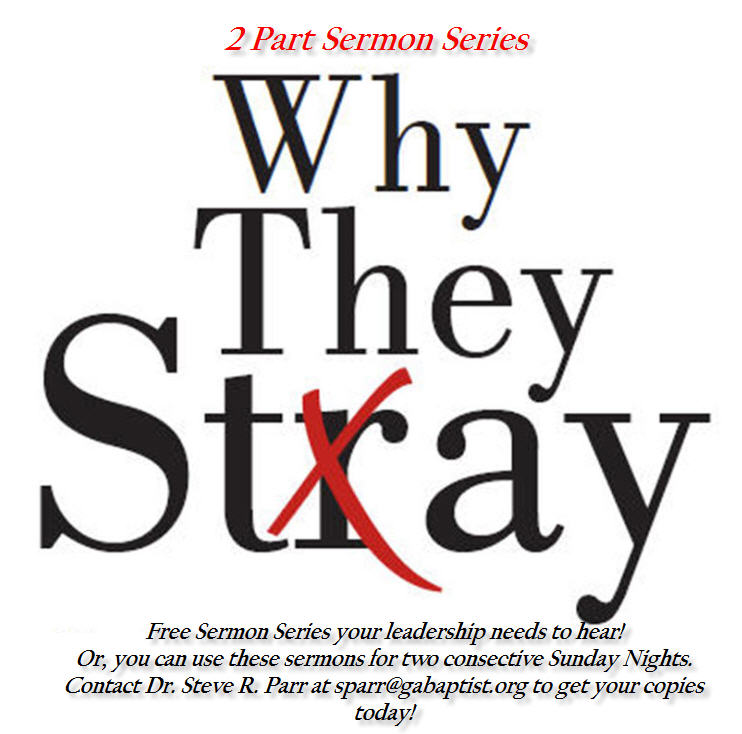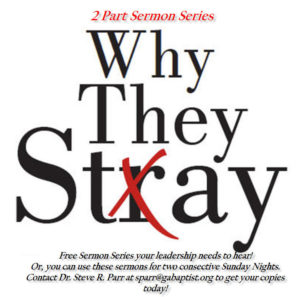Two weeks ago, I walked you through the first two principles of what needs to happen when a church leader finds it necessary to dismiss a volunteer. While the context was specifically about the need of a addressing a volunteer Bible study leader, the concepts have wider application. Here are more ideas to work through should you find yourself in this difficult situation:
Consider implications without compromising convictions
Suppose you have been serving in your leadership role for only a few months. What if the volunteer that needs to be dealt with has been serving for fifteen years? You would do well to proceed with much caution in this circumstance. The swiftness of action will be dramatically different if you have been on the staff for fifteen years and the volunteer for only a few months. What are the implications for your leadership if you confront a long-tenured Bible study leader if you are new in your position? Do not hesitate to tackle issues related to moral failure, severe scriptural violations, or teaching that contradicts essential doctrines immediately in order not to compromise convictions. However, other issues may need to be overlooked or addressed more casually at this point so long as those convictions are not violated. You may, for example, not appreciate that a Bible study leader is often late but you may or may not want to make an issue of it at this point. Pray for wisdom in knowing which problems to confront and when to confront them.
Another possible implication is the loss of members. You always risk losing the volunteer as a leader even if the issue is minor. They may take offense at the confrontation no matter how mild. In addition, you may lose the person that is confronted as a member of your church. Is it possible that they will influence others in the congregation and that division will arise or families may be lost? I am not suggesting that you do not need to address the leader, and the more severe the issue the more important it is that corrective measures are taken. The key is to consider the implications prior to taking action. The congregation may actually be better served if the person is removed or chooses to leave. Place the protection of your church’s biblical convictions and reputation first but do not neglect to weigh implications when addressing issues which although important are negotiable in the short term.
Take caution against neglecting scriptural precepts
What does the Bible have to say about the issue at hand? What does the scripture teach about the restoration of believers who have failed? The teaching of the scripture absolutely takes precedent in all of the circumstances described in this article. The suggestions that I am sharing are based on experience, wisdom, and practical application for dealing with volunteers. Ignoring problems or failing to confront difficult situations will not make them go away. Balancing compassion and confrontation is a challenge for all leaders. Study the scripture, pray for wisdom, and seek to address problems with integrity that is Christ-honoring.
Talk through the process before there is a problem
What would you do? Confronting problems can be awkward, stressful, and detrimental to relationships and the reputation of a church if not handled correctly. Sometimes it is better to talk about a problem when there is not a problem. Consider taking leaders through potential scenarios in the absence of specific problems and discuss them at a meeting with your leaders. You can conduct the discussion somewhat more objectively in the absence of an actual real time crisis.
Get insight from your current leaders on the manner and procedures for addressing problematic situations henceforth. You might consider taking what is learned in the discussion to develop agreed upon guidelines for future reference. A team can be designated from among your leaders and in turn you can present to your volunteer the process for dealing with difficulties in the future. A process such as this will not eliminate conflict but may reduce some of the stress involved since the manner for addressing problems was developed and agreed upon by volunteers or Bible study leaders from your church.
Establish written standards and guidelines for Bible study Leaders
Written standards can assist you in dealing with problems much more objectively. Although you may be objective it is easy for someone to take your opinions as a personal attack. Applying church guidelines will lessen, though not eliminate, the personal nature of any confrontation. Do you have leaders who arrive late each week? Take a moment to find the document that describes what time their arrival is expected and underline that section. Do you have leaders that do not participate in training? Take another moment and underline the section of the document that describes the number of hours or frequency of involvement in training expected by your church. If you cannot place your hands on these documents you are postured for greater difficulty in addressing leadership concerns. Many problems that churches have with Bible study leaders and volunteers are simple failures of communication.
Call together a group of leaders to serve on a team. Assign at least one leader from all of the life stages: preschool, children, students, and adults. Ask them to develop minimum standards to serve as guidelines and expectations of Bible study leaders as well as procedures for dealing with difficult situations.
You will find that it is awkward, stressful, and unsettling to deal with most problems severe enough to consider releasing volunteer or asking them to step down. Do not neglect to address issues on one hand and do not proceed rashly on the other. Above all, pray for God’s wisdom and always remember that restoration is preferred whenever possible.
This article is taken from my book Sunday School That Really Responds.











